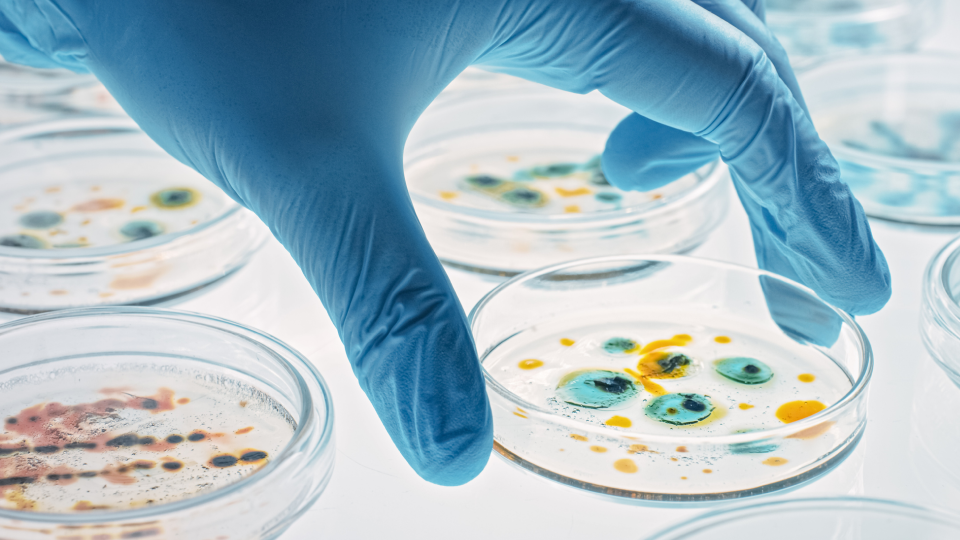The United Kingdom’s vibrant and internationally acclaimed biopharmaceutical industry is the result of a long-term vision and strong partnerships with the government. This thriving sector is further bolstered by a world-class talent pool, making it a hub for cutting-edge research, innovation, and advancements in the field of biopharmaceuticals.
Biopharmaceuticals
UK researchers have made significant contributions to global science initiatives, including leading nearly a third of the Human Genome Project. The UK has also spearheaded groundbreaking research efforts like the UK Biobank, National Institute for Health Research, and the 100,000 Genomes Project. This has laid the foundation for a robust biopharmaceutical industry with £36.7 billion in annual turnover, supported by a £18.4 billion service and supply chain industry in 2019. The government and industry aim to leverage these strengths, positioning the UK as a hub for medical innovation and high-risk science while enhancing the clinical research environment.

Opportunity highlights
Vaccines
The UK has a rich history of vaccine expertise, dating back to Edward Jenner’s smallpox vaccine in 1853. The country is a crucial market for global vaccine research and development, with consistent growth and significant recent investments. The UK excels in immunology, vaccinology, and vaccination program delivery, and is a major funder of GAVI, the Global Vaccine Alliance. The UK Vaccine Taskforce, formed during the COVID-19 pandemic, leaves a lasting legacy of investment and capabilities for future pandemics and broader vaccine development, manufacturing, and delivery.
Biologics
The UK is a leader in biologics development, having discovered top-selling biologics medicines and pioneered antibody discovery platforms. Key institutions like the Centre for Process Innovation, National Biologics Manufacturing Centre, and National Horizons Centre are addressing production challenges, enhancing efficiency, and providing high-quality workforce training. The sector has witnessed a 1,000% increase in life sciences investment since 2012, positioning it for further growth.
Small Molecules
Small molecules remain a cornerstone of the pharmaceutical industry, benefitting from expanding applications and technological advancements. With an annual turnover of £31.7 billion in 2019, the UK demonstrates its strength in this sector. The country has a track record of producing complex medicines at high quality and government-funded infrastructure ready to collaborate with businesses, such as the Medicines Manufacturing Innovation Centre.
Cell and Gene Therapies
The UK boasts the leading cell and gene therapy cluster in Europe and the largest outside the US. These advanced therapies hold great promise for treating a wide range of diseases. The Cell and Gene Therapy Catapult, established by the government, has fueled the industry’s growth, which has tripled in size since 2012. The sector employs 7,000 people, up from 3,000 in 2019, and hosts 12% of the world’s cell and gene therapy clinical trials. Manufacturing capacity has expanded by 25% in the last year, particularly in Scotland and the North of England. The NHS approved CAR-T therapy, one of the fastest commercial approvals in its history.
Precision Medicine
UK-led advancements in genomics are driving cost reductions and expanding applications for precision medicine. The Industrial Strategy Challenge Fund has invested £210 million in the sector through the Data to Early Diagnosis and Precision Medicine Challenge theme. The National Health Service is the first worldwide to introduce a genomic medicine service at scale and apply whole genome sequencing in routine clinical care. Precision medicine holds the potential to revolutionize the medical field.
Commercial maturity
The global pharmaceutical market is experiencing significant growth, with medicine spending projected to increase at an annual rate of 2 to 5%, reaching over £820 billion by 2024. The COVID-19 pandemic has further underscored the sector’s potential, with record-breaking investment in 2020, including more than £12.9 billion in Q2 equity funding for the biopharmaceuticals industry, the largest quarterly investment ever recorded.
Biotechnology now represents a substantial and expanding portion of the global clinical development pipeline, accounting for 80% of the total in 2018. More medicines are receiving approval compared to a decade ago, with two-thirds of upcoming launches focused on specialty products designed for chronic, complex, or rare diseases.
The UK offers opportunities for companies involved in both population health and precision medicine solutions, with a significant portion of the industrial workforce located outside the South East and London, highlighting the sector’s geographic diversity.
UK assets
The UK’s life sciences sector is strategically positioned in various regions, each offering unique strengths and opportunities:
Golden Triangle
The “golden triangle” of Cambridge, London, and Oxford is a globally renowned hub for life sciences, hosting over 3,700 companies, employing more than 193,000 people, and housing 19 of the top 20 global pharmaceutical companies. It boasts world-class universities with a focus on life sciences and health sciences.
North of England
The North of England, centred around Manchester, Liverpool, and the North East, offers competitive advantages with lower costs, a skilled workforce, and state-of-the-art facilities. This region excels in genomics, biomarker discovery, cell and gene therapies, medicines manufacturing, immunology, and digital health.
Midlands
The Midlands, particularly around Birmingham, features one of Europe’s most concentrated clinical trials clusters. It conducts a significant number of cancer trials in the UK and houses one of the three Advanced Therapy Treatment Centres in the country, addressing the challenges of delivering innovative treatments to patients.
Scotland
Scotland boasts an integrated healthcare infrastructure and substantial investments in stem cell-based treatments, in-vitro applications, and precision medicine. With vibrant life sciences clusters in Edinburgh and Glasgow, strong industry and supply chain connections, and growing manufacturing capabilities, Scotland offers attractive opportunities for companies.
Wales
Wales possesses global expertise in wound healing, neurosciences, oncology, and regenerative medicine. Its strength in precision medicine is evident through initiatives like Genomics Partnership Wales, while universities engage in multidisciplinary research and collaborate closely with clinical and business partners.
Northern Ireland
Northern Ireland provides excellent value for investors and fosters a highly connected and collaborative environment where global companies collaborate with academia, health organizations, and government agencies. The region’s cluster of companies spans the entire drug development value chain, with particular expertise in biomarker discovery and validation.
R&D capability
The UK’s life sciences sector offers an extensive range of assets and support mechanisms for companies:
- Access to World-Class Universities: Companies have access to renowned universities and research institutions, providing valuable collaboration opportunities, talent, and research resources.
- Life Sciences Infrastructure: The sector benefits from well-equipped laboratory space, science parks, and manufacturing facilities, fostering innovation and research.
- Incubators and Accelerators: Various incubators and accelerators support life sciences startups and scale-ups, helping them to develop and grow.
- National Health Research Network: Streamlined clinical trial operations are supported by a national health research network, facilitating efficient research and development.
- Innovation Support: Regulatory bodies, health technology assessment organizations, and the NHS offer support for innovation in the sector.
- Specialized Clusters: Specialized clusters in the UK focus on high-growth subsectors, such as precision medicine, cell and gene therapies, vaccine manufacturing, data science, and more.
- R&D Opportunities: Innovators can connect with research and development opportunities across the UK, making it easier to establish partnerships and collaborations.
- Notable UK Assets:
- Medicines Discovery Catapult
- Cell and Gene Therapy Catapult
- National Biologics Manufacturing Centre
- Medicines Manufacturing Innovation Centre
- Francis Crick Institute
- Rosalind Franklin Institute and Harwell Science and Innovation Campus
- Laboratory of Molecular Biology and Cambridge Biomedical Campus
- National Institute for Health Research
These assets and support mechanisms contribute to the UK’s robust life sciences ecosystem, making it an attractive destination for companies in the sector.
Business and government support
The UK government has outlined ambitious plans to support the life sciences sector and drive innovation. Here are the key components of these plans:
- UK Life Sciences Vision: This 10-year strategy aims to capitalize on the successes achieved in response to COVID-19 and accelerate the delivery of innovations to patients. It outlines seven critical Healthcare Missions where government, industry, the NHS, academia, and medical research charities will collaborate to address healthcare challenges.
- Clinical Research Vision: The Clinical Research Vision sets the UK’s ambition to remain a leading global destination for advanced clinical research. It focuses on creating a patient-centric, pro-innovation, and digitally-enabled clinical research environment. The goal is to streamline and expedite research across all phases.
These strategic visions emphasize collaboration between various stakeholders, including government, industry, healthcare providers, academic institutions, and research charities. They aim to create an environment conducive to innovation and advancement in the life sciences sector. Additionally, an agile and innovation-friendly regulatory framework is crucial for seizing opportunities in emerging technology areas.



